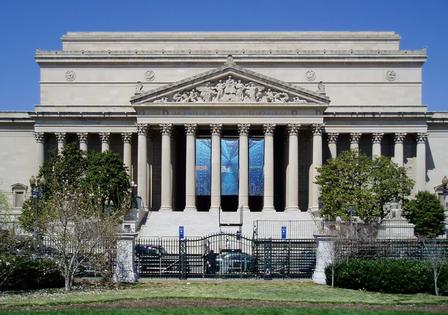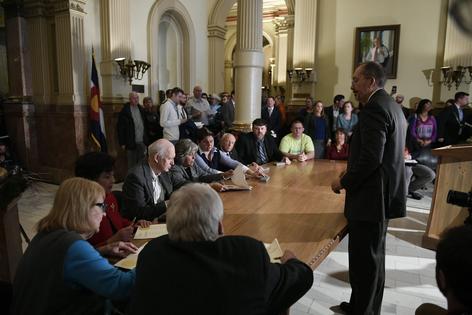Who formally declares the winner of the US presidential election?
Published in Political News
Unlike many other countries, where the president or prime minister is chosen by direct popular vote, in the United States a candidate may win the popular vote and still not be elected to the nation’s highest office. The U.S. also differs from most other democracies in that it has no independent electoral commission to certify the final vote count.
So who actually confirms the winner?
American democracy has many elected officials – state, local and national – and many processes for getting into office.
I have been working on election campaigns since I was 8 years old, when my dad ran for school board and I went door to door asking people to vote for him. I’ve also worked on local, congressional, senate and presidential races and now direct an academic research center on politics.
What’s striking is that every race is different, from deadlines and filing process to certification. Here, I’ll focus on the presidential race.
The unusual and complicated presidential election certification process in the U.S. entwines all 50 states and the District of Columbia, the Senate, House of Representatives, the National Archives and the Office of the Federal Register. It also involves the Electoral College – a uniquely American institution that convenes in 51 separate locations once every four years to pick the president.
This monthslong process was custom designed as a compromise by the Founding Fathers, who did not believe the American people should directly choose the president and vice president but did not want to give Congress the power of selection, either.
The Constitution declares that American presidential elections occur on the first Tuesday in November, every four years. But the federal election process actually begins in October, when the Archivist of the United States – a presidential appointee responsible for maintaining the government’s most important official documents – sends a letter to the governor of each state.
The document outlines their responsibilities regarding the Electoral College, which is not a place but a process by which electors – people who are chosen by their party – vote for their party’s presidential candidate.
The machinery of the Electoral College is complicated, but in short, Americans vote for electors and the electors vote for the president. Then, the winner is declared – right?
Read more:
Not quite.
Once a final tally of voters’ in-person, mail-in and provisional ballots has been concluded, all 50 governors prepare their state’s Certificate of Ascertainment, a document listing their electors for the competing candidates.
Each state completes that process at its own rate. This year, because of all the lawsuits disputing the results of the 2020 election, there are new procedures in place to expedite challenges to a state’s Certificate of Ascertainment by an aggrieved candidate. Once completed, copies of the Certificate of Ascertainment are submitted to the U.S. Archivist.
After the governor submits names to the Archivist, each state’s Electoral College electors meet in the state capital – D.C.’s meet in D.C. – to formally cast their votes for president and vice president on the first Tuesday after the second Wednesday in December. This year, that’s Dec. 17, 2024.
In ways that vary state by state, each state’s electors prepare six Certificates of Vote. One of them is sent by registered mail to the president of the U.S. Senate and another to the Archivist of the United States. The remaining four certificates are sent to state officials.
That fulfills the Electoral College’s duties until the next presidential election.
On Jan. 6, Congress convenes to count the electoral votes and certify the winner of the election.
Because the sitting vice president also serves as president of the Senate, Kamala Harris will preside over this count in 2025, just as Vice President Mike Pence did in January 2021 when Joe Biden officially became president-elect. Each state, called upon in alphabetical order, files its votes.
This process is normally ceremonial, because by January the media has declared a winner and usually a concession speech has been given. But, officially, it is the moment of truth.
On Jan. 6, 2021, an armed pro-Trump mob stormed the Capitol in an attempt to stop Congress from certifying Biden’s victory. Both chambers of Congress were evacuated during the attack, and five people were killed.
Lawmakers reconvened a few hours later. It is the vice president’s job to announce the results and ask whether there are any objections. After the violent assault on the Capitol, most Senate Republicans abandoned their plans to dispute Biden’s win in 2021, but six still objected.
Objections are not unprecedented. In 2001 Democratic House representatives tried for 20 minutes to block Florida’s highly contested electoral votes for George W. Bush.
Both of those efforts failed because objections had to be signed by both a member of the House and the Senate before being voted on by both chambers of Congress. Lodging challenges got harder following legislation passed in 2022. Now, 20 senators and 87 House members must back any challenge to the certification of a state’s Electoral College results.
In 2021, it fell to Pence, as president of the Senate, to declare Biden – not Trump – the next president of the United States. He fulfilled his constitutional duty despite immense pressure from Trump to subvert democracy.
After the Senate certifies the election results, all the Certificates of Ascertainment and Certificates of Vote become available for public review at the Office of the Federal Registrar for one year, then transferred to the National Archives for the permanent record.
Those who question the outcome of a U.S. election, in other words, can double-check the tabulations themselves.
In the extraordinary event that no candidate wins in the Electoral College, the House of Representatives meets to elect the next president. This is how John Quincy Adams became president in 1824.
Established almost 250 years ago, this complex process is a foundation of American democracy. Many have questioned whether this antiquated system truly represents the will of the people in modern America.
But for 2024, with a few tweaks, it remains the process that will decide the presidential race.
This article was originally published during the 2020 presidential election. It was updated on Nov. 1, 2024.
This article is republished from The Conversation, a nonprofit, independent news organization bringing you facts and trustworthy analysis to help you make sense of our complex world. It was written by: Amy Dacey, American University
Read more:
Politics with Michelle Grattan: Bruce Wolpe says personal relations between Trump and Albanese would be ‘rocky’
Could Ukraine be heading toward a frozen conflict? Why so much is hinging on the US election
The Proud Boys founder counselled Kanye West about Hitler. John Safran has the lowdown
Amy Dacey is the former CEO of the Democratic National Committee. She has donated to the Harris for President campaign in the 2024 election cycle.


































































Comments